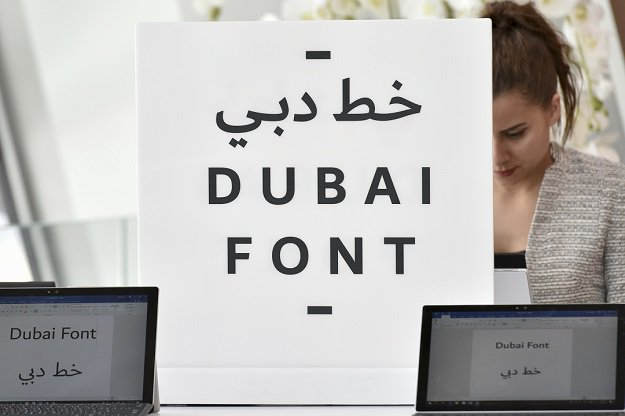Not content with having the world’s tallest building and biggest shopping centre, Dubai has become the first city to get its own Microsoft-designed font.
The typeface comes in both Latin and Arabic script, and will be available in 23 languages.
Government bodies have been told to use it in official correspondence.
But given the human rights record of Dubai and the United Arab Emirates, eyebrows will be raised at claims it is a font of “self-expression”.
‘Create harmony’
Dubai’s Crown Prince Hamdan bin Mohammed al-Maktoum said he had been personally involved in “all the stages” of the development of the font.
It was “a very important step for us as part of our continuous efforts to be ranked first in the digital world,” he added.
“We are confident that this new font and its unique specifications will prove popular among other fonts used online and in smart technologies across the world”.
Dubai’s government said the typeface’s design “reflects modernity and is inspired by the city” and “was designed to create harmony between Latin and Arabic”.
When self expression isn’t usually your type
“Self-expression is an art form,” says the blurb accompanying the launch of this font.
“Through it you share who you are, what you think and how you feel to the world. To do so you need a medium capable of capturing the nuances of everything you have to say.
“The Dubai Font does exactly that. It is a new global medium for self-expression.”
But the United Arab Emirates – of which Dubai is part – has been criticised for its restrictions on free speech.
The constitution does guarantee the right to freedom of opinion and expression, but Human Rights Watch (HRW) says this “has no effect on the daily life of the citizen” and the country “has seen a wave of arrests and violations of human rights and freedoms and mute the voices of dissent”.
In March, high-profile human rights activist Ahmed Mansoor was arrested, a move HRW said showed “complete intolerance of peaceful dissent”.
The UAE’s official news agency, WAM, said Mansoor had been held “on suspicion of using social media sites to publish “flawed information” and “false news” to “incite sectarian strife and hatred” and “harm the reputation of the state.”
Courtesy: BBC




